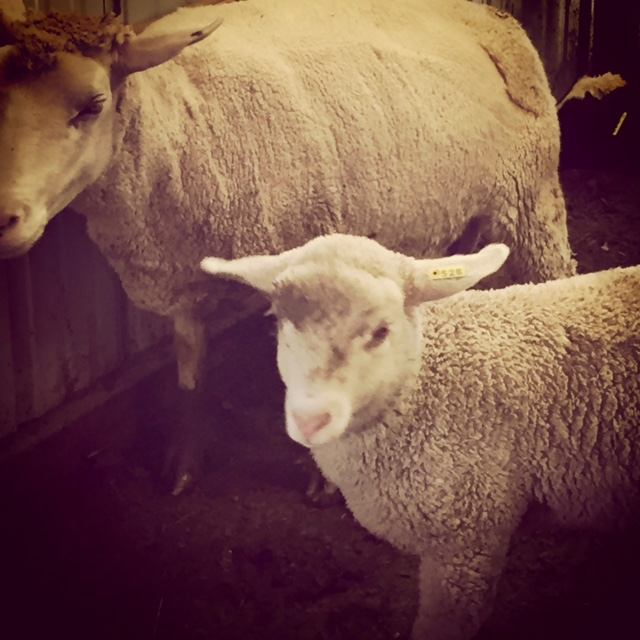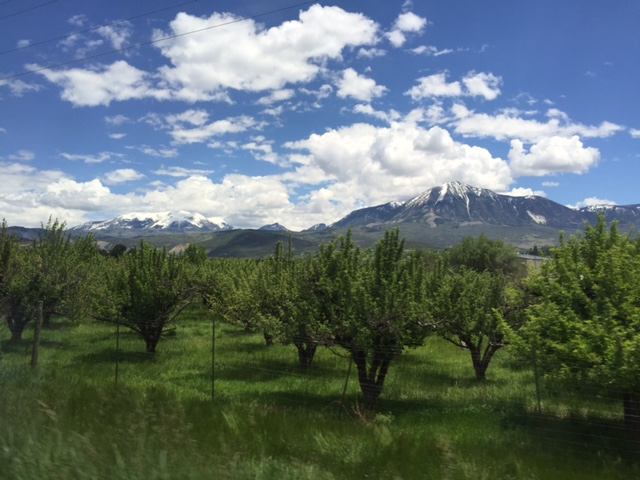 The buzzword in travel during the last decade was ecotourism. It’s a well-intentioned term, but often misunderstood, sometimes misapplied, and even misleading. This decade’s buzzword could be agritourism, but that can easily be corrupted by some destinations that often confuse the term with nature-based tourism activities like bird-watching, sleigh rides, or hiking—and call it an agritourism experience.
The buzzword in travel during the last decade was ecotourism. It’s a well-intentioned term, but often misunderstood, sometimes misapplied, and even misleading. This decade’s buzzword could be agritourism, but that can easily be corrupted by some destinations that often confuse the term with nature-based tourism activities like bird-watching, sleigh rides, or hiking—and call it an agritourism experience.
So what does it really mean? For starters, it means different things in different parts of the world. However, agritourism is generally defined as an experience that includes visiting or staying on a working ranch or farm, vineyard or agribusiness—and having the opportunity to take part in the everyday workings of the destination. You might be able to assist with animal or crop care, harvests, cooking, farm or ranch maintenance—or help with handicraft creation. It’s an educational experience for the visitor, and an additional source of revenue for the business.
 Agritourism does include more touristy activities, such as an afternoon at a pumpkin patch or a trip to a local dairy to milk the cows, but there are also a large variety of opportunities all over the country to experience the natural daily rhythms of real farms and ranches. See where our meat, vegetables, and fiber products come from.
Agritourism does include more touristy activities, such as an afternoon at a pumpkin patch or a trip to a local dairy to milk the cows, but there are also a large variety of opportunities all over the country to experience the natural daily rhythms of real farms and ranches. See where our meat, vegetables, and fiber products come from.
Many of these experiences can be found in places you might expect—like California’s Sonoma and Napa counties, where you can visit vineyards and farms, to learn the art of wine blending, or how to prepare your own farm-to-table meal. Wyoming and Montana are home to dozens of ranches where just like in the film City Slickers, you can participate in a cattle drive. In Vermont or Wisconsin, there are farms and dairies where you can pick fruit and learn to make cheese. All over New England, you can go maple sugaring—and tap your own maple syrup.
But there are some interesting agritourism surprises. When most people think of Colorado’s Western Slope, they think of oil and gas. Contributing writer Kathy Jackoway recently visited Grand Junction and Delta County, which provided her with an opportunity to participate in some agritourism activities.
Local Wine
Wine grapes thrive in dry, warm conditions, and the area’s high elevation, ranging from 4,500 feet to nearly 7,000 feet, combined with over 275 days of sunshine and a very dry climate, make it an ideal location for its dozens of wineries, distilleries and cider mills—as well as lavender farms and peach, cherry, apple and pear orchards.
If you are unfamiliar with Colorado wines, you’d be surprised to taste a number of wonderful award-winning whites and reds, along with a couple of unusual varieties, such as peach wine, made from the region’s renowned Palisade peaches, honey-based wine, and an unusual light and crisp lavender-infused white wine. Most of the wineries offer complimentary tastings for the first four or five samples—and then a nominal fee for each additional tasting.
 Sun Crest Orchard Alpaca Farm
Sun Crest Orchard Alpaca Farm
If you’re traveling with kids, one option is to visit the Sun Crest Orchard Alpaca Farm. The farm is home to over 35 alpacas and you can pet and feed them before taking a tour of the processing room and mini- mill to learn how the alpaca fiber goes from sheared fleece to yarn. On the weekends, the farm also offers an hour-long trekking tour through the peach orchards for $10, where kids (and adults) can have an up-close and personal experience with an alpaca.
Tourné Cooking School
The abundance of fresh produce grown on local farms also makes it a great destination for gardeners, foodies, and cooks. If you’re a hands-on chef looking to brush up on your technique, Suzanne Hantzl, founder of the Tourné Cooking School, offers cooking classes and culinary boot camps in her Grand Junction home, utilizing local ingredients.
Suzanne doesn’t just demonstrate her kitchen skills. She immerses you as well. “I grew up on a farm in Northern California,” she says, “and I joke with my parents all the time about farm-to-table. We were into it before it was a cliché. It’s just how we lived.” Suzanne offers seasonal and specialty classes, but she also arranges private group instruction. A three-hour class is $50 per person, and you leave not only with recipes and new skills—but also with a full stomach.
West Slope Supper Club
If you’re more interested in having someone else whip up your meal and are looking for a dining experience that’s not your usual restaurant meal, check out the West Slope Supper Club. It creates pop-up dinners and craft cocktail parties in vineyards and on farms, showcasing the region’s chefs, farmers, winemakers, brewers, and distillers. The tab is often hovering at just $25.
 The Living Farm in Paonia
The Living Farm in Paonia
At The Living Farm in Paonia, you can get an up close and personal look at how an organic, sustainable farm works. Tour the farm and meet the chickens, heritage turkeys, and dairy sheep. If you can pull yourself away from cuddling the fluffy baby lambs, you can visit the extensive gardens where you will learn about alternative year-round heating methods for greenhouse gardening, organic pest control, and how to create your own perpetual greens garden. The Behind-the-Scenes Tour is a bargain at $6 (and kids under five are free), but if you’re interested in the VIP tour package, for $160 you can spend the night with breakfast, dinner, and the tour included.
Other Unexpected Agritourism Experiences
First Vineyard in Nicholasville, Kentucky
We all know about Kentucky bourbon. But most people don’t know that the first commercial vineyard in the U.S. was established in Kentucky in 1799. Check out First Vineyard in Nicholasville, where you can sample a wide assortment of white, red, and blush wines, as well as more unusual offerings like apple pie, sweet blackberry, and cherry cordial (cherry and chocolate). While visiting, you can tour the historic property and view the hundreds of historical documents and artifacts in the vineyard’s library/museum.
Red Barn Farm in Northfield, Minnesota
How about an unusual farm-to-table experience in Minnesota? Red Barn Farm near Northfield (an hour outside of Minneapolis) offers a Wednesday evening pizza dinner. Bring a blanket and your own beverages, and dine on pizza baked in wood-fired ovens with ingredients fresh from the farm. After dinner, the kids can pet the animals and chase the chickens.
Bucks and Spurs Guest Ranch in Ava, Missouri
A cattle drive in Missouri? The Bucks and Spurs Guest Ranch in Ava, Missouri offers horseback riding, cow roundups, and cattle drives on their 700 acre ranch. After a hard day’s work, enjoy a home-cooked meal made with fresh, locally sourced produce—and beef right from the ranch.
The Ritz-Carlton in Charlotte, North Carolina
Looking for something a little more urban? The Ritz Carlton in Charlotte, North Carolina offers an agritourism experience right in the hotel. Meals and cocktails in the hotel incorporate freshly-grown flowers, herbs and vegetables from the gardens located on the hotel roof. You can also pick your own produce from the Lobby Farmers Market to take home with you, or take a cooking class utilizing ingredients from the hotel garden. If you visit in summer you can participate in a summer honey harvest led by the hotel’s beekeepers.
Agritourism Experiences Year Round
Padlock Ranch in Ranchester, Wyoming
Seasonal activities at the ranch include cattle drives, branding, roundups, and stockmanship. Guests interested in a more intensive experience can opt to enroll in the Padlock Ranch Cowboy School.
Mountain Farm in Burnsville, North Carolina
Atthis organic lavender, blueberry, and dairy goat farm in the mountains of western North Carolina, guests can participate in goat milking, feeding, and brushing. They also offer workshops in cheese and soap making, using products from the farm.
Grand View Farm in Washington, Vermont
Visitors can learn about maple sugaring, sustainable farming, or participate in a felting, natural dye making, or weaving workshop.
Chantilly Ridge Alpacas in Port Orange, Florida
Guests at this central Florida farm have the opportunity to help out with alpacas, make natural goats milk soap, or learn the art of felting and knitting.
Text and Images by Kathy Jackoway for PeterGreenberg.com














